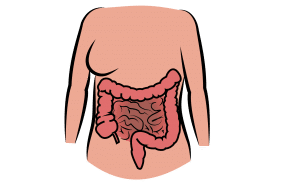A 3 Step Process For IBS Control
- Dietary Advice (non Low FODMAP)
Introduction
Irritable bowel syndrome (IBS) affects 1 in every 10 people in the UK (1). The symptoms of IBS can really take over your life and the idea of ever gaining control of your symptoms may seem like an unrealistic dream.
I recently conducted some interviews with people who suffer with IBS. They told me that having control and understanding over their IBS would be ‘AMAZING‘ and ‘LIFE CHANGING.’
This blog post today will show you the 3 step process I take my IBS clients through in order to gain symptom relief. At the end, you can sign up to my mailing list and I will send you a copy of my tried and tested check list so you can get some relief also.
Step 1. The IBS Basics
This stage is easily skipped – but please do not! If you skip this step then I can guarantee that you will not get the results you want.
Getting a Diagnosis
There are currently no specific tests for IBS, but it is important to get an accurate diagnosis as symptoms alone are not enough. Digestive symptoms that occur in IBS may also occur in inflammatory bowel disease, coeliac disease or even bowel cancer.
To get an accurate diagnosis, your GP should follow the ‘NICE guidelines’ these are a set of guidelines considered as a ‘gold standard’ in the UK for healthcare.
Tests For IBS (3, 4)
- TTG – coeliac disease screen.
- Full blood count – to look for infections.
- CRP – to look for inflammation.
- ESR / plasma viscosity – to check for inflammation.
- Faecal calprotectin – to check for inflammatory bowel disease.
What Caused Your IBS?
The actual cause of IBS is still unknown, but it is thought to be ‘multifactorial.’ This means that there are many factors. If you can identify which factors caused your IBS, then tackling the symptoms will become a lot easier.
The factors that we know to be an issue are;
- Family history.
- Infection.
- Stress / anxiety – via the ‘gut brain axis.’
- Food intolerances / malabsorption.
- Hypersensitivity (when your gut becomes overly sensitive and feedbacks back sensations of pain to the brain that aren’t really there).
- Dysbiosis – when your gut bacteria is out of balance.
Although there are many factors that may cause or contribute to the symptoms of IBS, we generally see that people suffer with more than 1 of these issues.
For example – a lady who comes in with post-infection IBS will have suffered initially with dysbiosis due to have her gut flora wiped out through diarrhoea. This has then led to a lot of stress and ongoing anxiety which feeds back into the gut – brain axis and worsens symptoms through hypersensitivity.
What Type of IBS Do You Have?
There are 4 different types of IBS. Identifying which one you are will help you manage your symptoms more effectively as not every IBS solution will work for all symptoms.
- IBS – D – diarrhoea predominant.
- IBS – C – constipation predominant.
- IBS – M – mixed type.
- IBS – U – unclassified.
Creating Good Gut Health Habits
So many people we see in clinic often aren’t looking after their gut at all. Yes, they may have IBS, but they are not taking the right basic steps that even a healthy gut would need.
Could you confidently say that you are …
- Exercising regularly?
- Getting enough time and quality sleep?
- Eating 30g fibre / day?
- Eating regularly?
- Drinking enough fluid?
- Doing daily stress management exercises?
Step 2: Finding Out Your Triggers
Although there is no ‘cure’ for IBS, finding out what your triggers can mean that you avoid symptom flare ups.
Common IBS Triggers;
- Caffeine.
- Spicy foods.
- Meal patterns.
- Alcohol.
- Fatty foods.
- Resistant carbohydrates.
- FODMAPs.
- Inadequate fluids.
- Sleep disorders.
- Stress.
- Anxiety.
It is not recommended that you necessarily avoid all of these triggers, as everyone is different and you may end up unnecessarily avoiding foods or situations. However, working with a dietitian to find out which triggers cause your symptoms is a great way to get relief from your IBS.
The Low FODMAP Elimination & Reintroduction
FODMAPs are another type of trigger that can cause an issue in those with IBS. Following a low FODMAP diet for a period of 4-6 weeks can help with IBS. However, this one needs to be done under the guidance of a dietitian.
After the period of 4-6 weeks, FODMAPs are reintroduced one group at a time to find out which ones are triggering symptoms. The video describes this in more detail.
Step 3. Maintaining IBS Symptom Freedom
Don’t Become Complacent
Once you have reached control over your gut symptoms it can be easy to become complacent and your symptoms suddenly come back.
By building in a good accountability structure, you can avoid future IBS symptoms.
Dysbiosis
The other issue to consider at this point is tackling dysbiosis. This is an issue in those with IBS and simply means that your gut bacteria is unbalanced. This unbalanced gut bacteria may lead to IBS symptoms and so tackling this through a specific probiotic will again reduce symptoms in the future.
Summary
By following these steps, I know that you can get symptom relief because each and everyone is based on proven science. AND – it is the exact process I take each client through in order to get results. Don’t believe me? Below are 2 before pictures and 1 after picture of a client who decided to my online ‘Get Control’ programme.
What Next?
Have a look at my membership program – Take Control of Your IBS Symptoms. You can get all the details by clicking here.